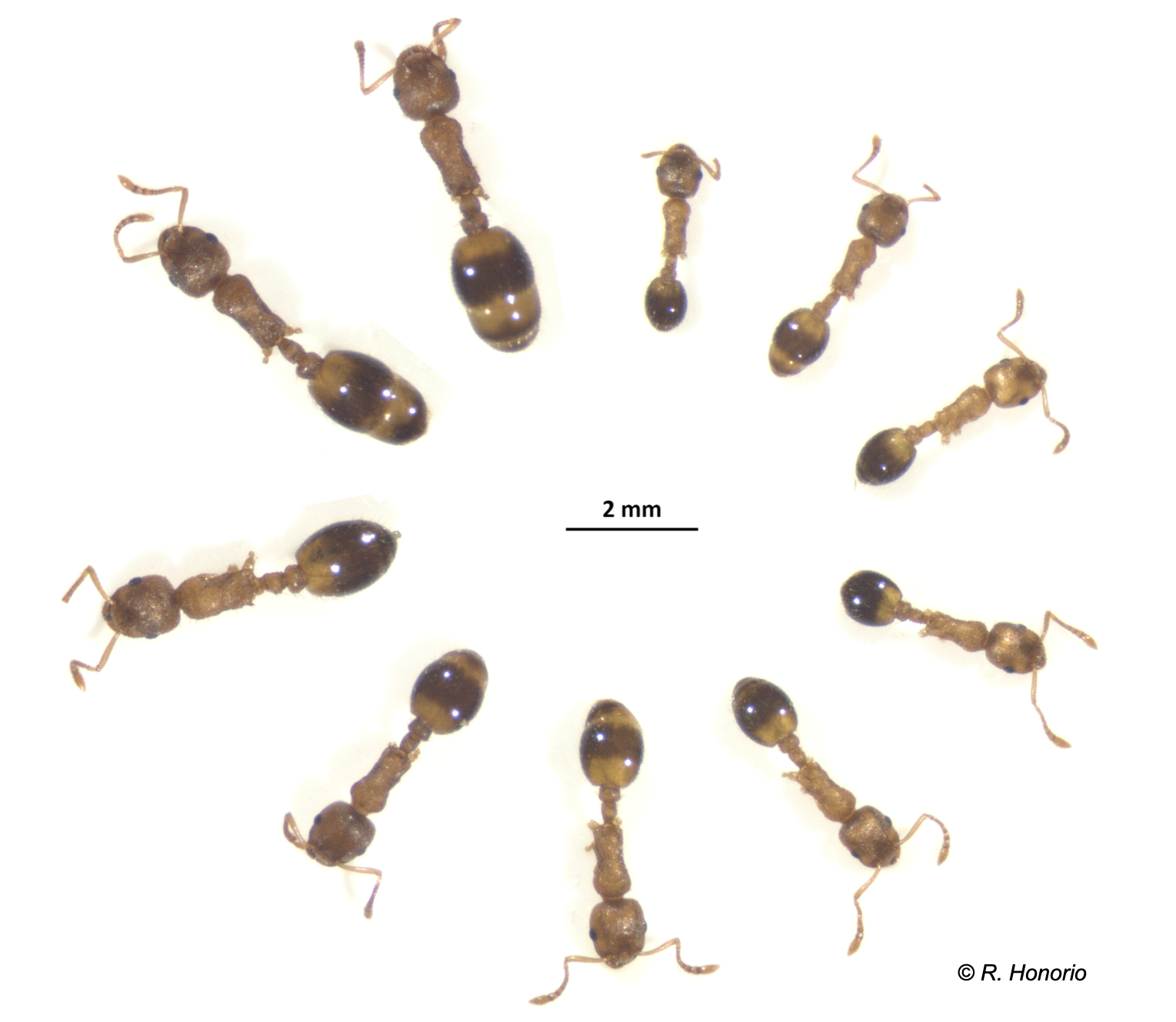Social groups consist of individuals that differ from one another, and many studies show that this diversity improves group efficiency. In social insects, size diversity can, for example, improve the efficiency of foraging, nest building, brood rearing and production of young queens. Thus, colonies that re more diverse are generally also more efficient.
Romain Honorio and his colleagues from Sorbonne Université and EPHE manipulated worker size diversity in colonies of an ant species with moderate size diversity, to measure the impact on colony efficiency (growth, survival, fecundity).
Surprisingly, this study, performed in a natural environment, shows no impact of worker size diversity on colony efficiency. Their article, published in Behavioral Ecology and Socioiology, discusses how diversity could result from individual selfish strategies, or from evolutionary mechanisms that relax larval development in a social context.
Key-words : colony size, social insects, mean body size, survival, growth, reproductive success
In social insects, within-colony worker diversity has long been thought to improve colony fitness. Recent studies start to question this assertion in species with moderate diversity. However, demonstrating an absence of effect is difficult as this absence could be caused by the measurement of only few life history traits or to artificial conditions.
In order to circumvent these limitations, we experimentally decreased worker size diversity within colonies of the ant Temnothorax nylanderi, with or without affecting mean worker size and we reintroduced them in the field for four months (spring and early summer). We then thoroughly measured their fitness based on survival, growth and reproductive success.
Our manipulation did not affect colony fitness. In addition, colonies did not restore diversity to its initial level, further suggesting that worker size diversity is not a key parameter to them.
We found the classically observed positive relationship between colony size, colony growth and reproductive success.
Overall, our results confirm that worker size diversity within colony is not necessarily adaptive in species where it is moderate. We discuss the alternative mechanisms that could explain the evolutionary persistence of moderate worker size diversity.
iEES-Paris members:
HONORIO Romain & MOLET Mathieu
Contact :
HONORIO Romain, doctorant SU
Publication :
Honorio R., Doums C. & Molet M. (2020). Manipulation of worker size diversity does not affect colony fitness under natural conditions in the ant Temnothorax nylanderi. Behavioral Ecology and Sociobiology. DOI: 10.1007/s00265-020-02885-2
Communication contact :
iees_paris-com@upmc.fr










